Stepping into Journalism: Revd. William F. Jackson and the London Daily Press, 1772-1794.
Last time we left William Jackson, it was 1767 when he had made the trip (supposedly) to Ireland and spent 6 months in the company of Barry Maxwell, Earl of Farnham at the behest of George Hervey, 2nd Earl of Bristol. Lord Bristol, having been made Lord Lieutenant of Ireland had intended, or at least promised to make his way to Ireland to be the first resident Lord Lieutenant in nearly 7 decades. He had hired his own brother, Augustus Hervey, future 3rd Earl of Bristol to be his Chief Secretary in Ireland. It is either as secretary to George or his brother Augustus that Jackson was to be employed, but Bristol’s tenure didn’t last more than 10 months and Jackson was left unemployed and without prospect. From this point we enter into a brief void in the chronology of Jackson’s life.
Seemingly, between 1766-72 Jackson had given up attempts at making it in the Church, and instead transitioned into journalism. We know he preached in London, at St Mary-le-Strand and Tavistock Chapel on the corner of Broad Court and Drury Lane, but specific dates remain elusive. In exploring Jackson’s career as a journalist, I will be moving over some major events of his life – for today I want to explore his career in detail, and at a later date return to some of the exploits his career brought him face to face with. I will be dropping details here and there, but for now we’ll plot each and every job he took, and try our best to explain any and all gaps that are evident.
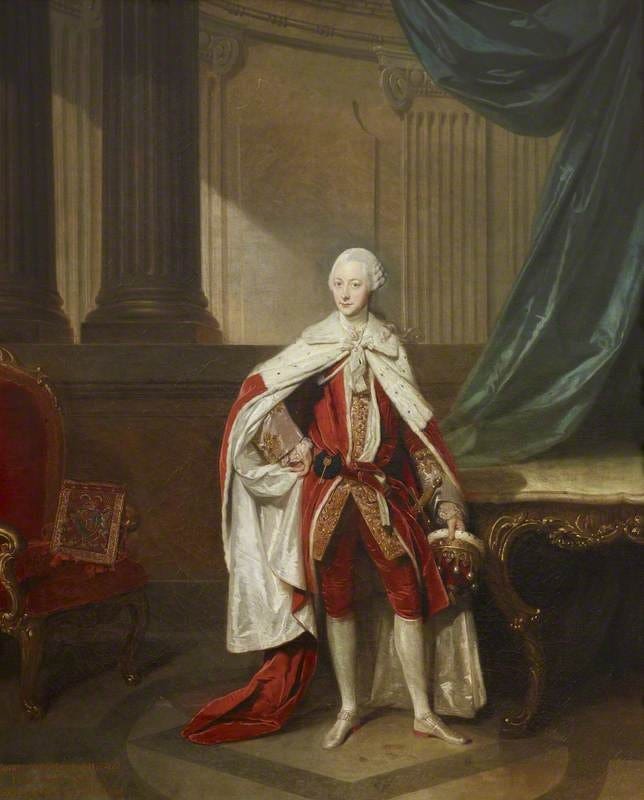
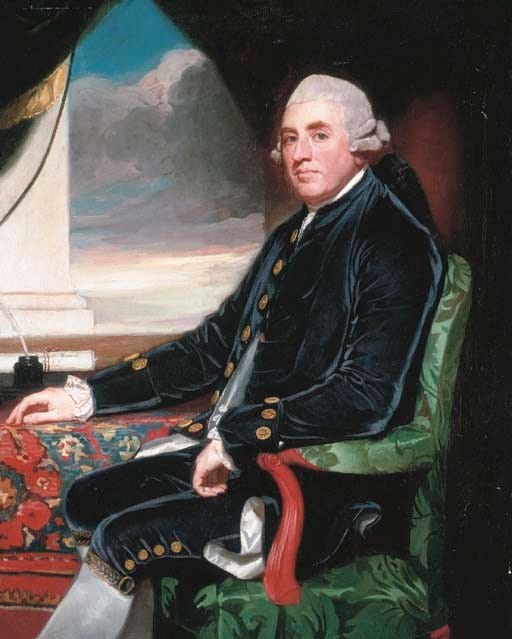
Thankfully, it is from this point on that Jackson’s life becomes easier to paint a clear and consistent picture, there is much more documentary evidence from 1772 onward, be it his newspapers, which contain both signed and unsigned work, surviving memoirs of friends, or the papers of those he worked for, and against. Jackson until 1772 seems to have lived largely off the beneficence of the Hervey family – whether legitimately as a curate of the church or not, it is evident that he was given some level of work. It is not until he makes a career for himself that he well and truly enters the fray as an individual of note on the historical record. In doing so he made a name for himself among the London publishing houses and elite, long before he made a name for himself in Paris and Dublin in the 1790s.
Scholars have differing opinions on the exact timeline of his early career – it was believed that Jackson became editor of the The Public Ledger as early as 1766 and this remained consensus until the 1970s thanks to the work of Lucyle Werkmeister. This would conflict with his time under Lord Bristol though, as he would’ve been present in Ireland – if it really was for six months – until this close of that year at the very least. Other scholarship, specifically Robert R. Bataille in 1985, looking closely at the early editorship of the Ledger, deduces that Hugh Kelly was editor as late as 1772, and that Jackson likely only entered the fray around this time as his replacement.
Side-note: The Ledger fell under the editorship of a succession of Irishmen at this time - Hugh Kelly, William Jackson and Leonard MacNally appear to have all taken up the role from the 1760s right up to the 1780s. There is certainly scope for a study there, in and of itself.
During his time at the Public Ledger, Jackson developed a reputation for being a ‘pugnacious Irishman, who loved a good fight’. He wrote primarily what were called paragraphs in the world of the Atlantic press and used them to great effect. Around the time which Jackson may have become editor of the Ledger (1772), the tone of the publication shifted to one which was very critical of the North Ministry which would oversee the outbreak of the American Revolution, the Gordon Riots and much more, spanning 1770-1782.
Jackson similarly spent the entirety of his time at the Ledger, deftly skirting the line between commentary and libel – with thanks to weak libel laws, he was allowed to attack his enemies and critics with vigour. The most clear-cut example would be his involvement in the publicity fight between Elizabeth Chudleigh and Samuel Foote. Chudleigh, a peer of the realm – Countess of Bristol and Duchess of Kingston being two titles she claimed, both of which were contested, was accused and found guilty of bigamy in 1776. Samuel Foote, the famous playwright sought to bring about a production called A Trip to Calais which indirectly satirized Chudleigh, with a character who openly advocated for multiple husbands. Chudleigh hired Jackson to be a publicist of sorts, and he wrote supportive paragraphs in the paper for her and authored communications from herself, to Foote.

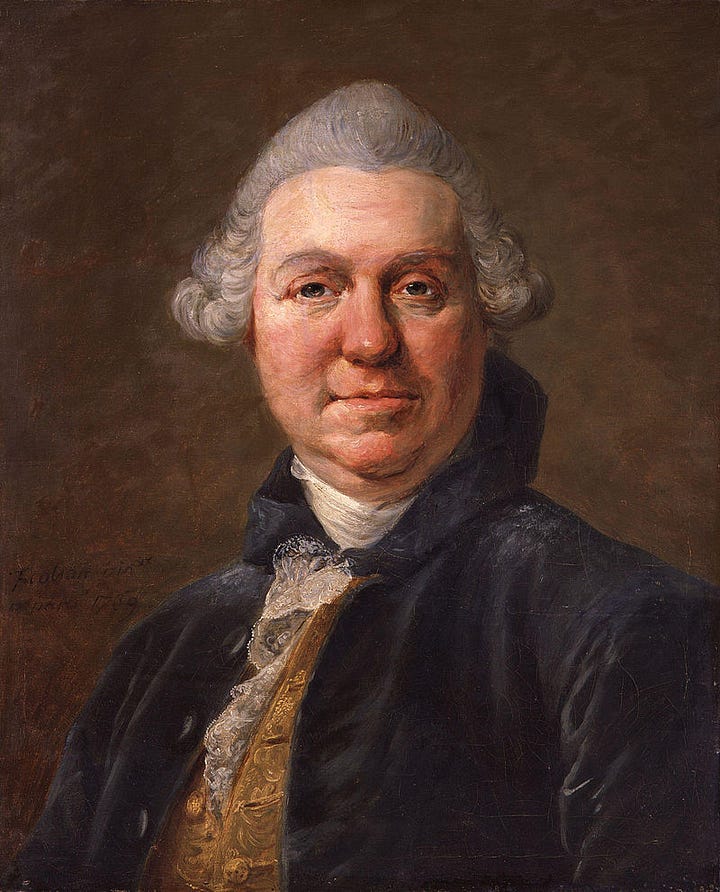
In the end Foote did relent – having been denied approval to perform the play, he also agreed to not publish a written version either - it should have ended there. Rather Jackson and Chudleigh, in a fit of drunken merriment, decided to write a condescending letter to Foote and proceeded to send much of the private correspondence between them to the press. In doing so they also insinuated that Foote was attempting blackmail - he wouldn’t publish anything in exchange for a favour, was what they had claimed.
Jackson continued to attack Foote over the course of the next two years, making various salacious accusations, insinuating that Foote was a homosexual and had committed sodomy on multiple occasions. In July 1776 a former servant and Footman of Foote’s brought forward charges of sexual assault against his former employer. Later that month Jackson made a connection with the servant and agreed to aid his legal case as well as pay his legal fees (thanks to his patron Elizabeth Chudleigh). Jackson banked quite heavily on Footes conviction – he went on to name Foote and his suggested lovers as sodomites, the only thing protecting him from a libel suit was that all of those named, were included in the servant’s accusations as evidence. If Foote was found innocent or acquitted of the charges of sexual assault, Jackson was making himself a target for a libel suit after the fact.
Eventually the trial came before the Court of Kings Bench at Westminster where each side had numerous legal counsels and the expenses had skyrocketed. One of the legal counsels for the defence, was the brother-in-law of Revd. William F. Jackson, his name was Luke Naylor.
As an aside, until now I have known that Jackson was married twice, his first wife having passed at some point in the 1770s to cancer, and he married the second sometime after his departure from Britain in the late 1780s (I believe). Of his first wife, virtually nothing is known except that she existed, and that she died of cancer. This Luke Naylor may help us as we don’t even know her name – but knowing Jackson had no sisters to speak of, it proves very likely that his first wife’s given name was Naylor.
The presiding judge, Lord Mansfield – a long-time friend of Elizabeth Chudleigh, and the main reason Foote’s original play about her was never performed – took issue with the way in which the trial was conducted. He found numerous inconsistencies in the testimony of the former servant, and was uncomfortable with the obvious and blatant involvement of Jackson and Chudleigh in the shadows. Mansfield ended by saying ‘I expected to have heard of the real person who acts behind the curtain’ – by which he meant Jackson.
Foote was acquitted in the end, by the courts and the general public too. Almost immediately Foote launched a libel case against the Public Ledger – but was able to convince the owner Thomas Brewman to provide evidence against Jackson in order to preserve the paper any embarrassment – which he happily did. A subpoena was launched against Jackson, but by the time it reached his home on 19th April 1777, he was conveniently already half way to France, and was due back in a month. Jackson was however to be absent until the end of the year, not long after Foote passed away in October. Since you couldn’t libel someone already dead, all charges against him were dropped and he was free to return to London.
It appears that for a few years, from 1778-1784, he lived off the bounty of a final lump-sum paid to him by the Duchess of Kingston. She had fled into exile following the return of a guilty verdict in her trial for bigamy in 1776 and had granted Jackson a final prize for services rendered. This likely occurred when they both found themselves in France in 1777 – she paid him well for this and was continuing to receive money from her as late as 1779 and he made regular visits to see her in the 1780s whenever she was residing in France.
He appears to have remained unemployed for the following 4-5 years, though this is simply because there is no evidence to suggest otherwise. He was given accommodation free of charge at Lyons Inn, at the behest of Samuel Clay Harvey, at that point in time proprietor of the Public Ledger, and while there appears to have continued a friendship with John Cockayne, a London attorney who first introduced him to Elizabeth Chudleigh, but most interestingly he seems to have befriend Leonard MacNally, future United Irishman and famous barrister turned informer for Dublin Castle in the run up to the 1798 Rebellion.
In March 1784 we see him return to full time employment in journalism. He took up the post of editor at the Morning Post newspaper. He conducted this role in a rather secret manner, as it was to serve a role as a government supporter for William Pitt at the general elections of that year. The paper had already been owned through a significant share by ministerial members, but John Benjafield received £310 in 1784 from Secret Service funds to buy another share of the paper and to solidify the papers pro-ministerial stance. During his time with the Post he published pro-government columns under the pseudonym ‘The Scrutineer’, something he managed to keep secret until a rival paper uncovered his identity in September 1784. He was to remain editor until early 1786 when he was pushed out by Richard Tattersall, the owner, and replaced by Peter Stuart.
This was to be the last explicit evidence of Jackson’s involvement with journalism. There are further suggestions of work he did, but they remain as such – suggestions. It is hard to argue with the relevant timelines however. In 1789 Jackson fled Britain again, having entered into a poorly thought out business venture and accruing significant debts, he sought to flee instead, under the pretext of travelling with Colonel Philips Glover, an intimate friend of the Duke of Kingston, to France to settle the will of his one-time employer, Elizabeth Chudleigh who passed away in 1788. Werkmeister posits the theory that Jackson took up work as a foreign correspondent for a paper called the Morning Star, established by Peter Stuart, the man who replaced Jackson at the Morning Post.
In February 1789, around about, or just prior to Jackson’s departure for France – an article appeared which was signed W.J. and up until May 1789, the paper carried no foreign news relating to continental affairs whatsoever. Suddenly, on 11th May, there appeared an account of Colonel Glover’s travels in France and was from this point on steadily supplied with news from Europe until the paper closed in June 1789. Another paper, called the Oracle was established by John Bell, friend to Peter Stuart and associate of Jackson - and from early 1790 onward Stuart became its editor.
The Oracle developed a reputation of renown for the level of its European correspondence and intelligence - the level of detail it provided and the output provided made it difficult for other papers to rival it. Usually only certain papers acquired continental news and other papers reproduced it in their own. The news from Europe continued consistently and reliably until the spring 1794. It is this that make me believe it may well have been Jackson. He had up and left London, never returning except for a single clandestine trip in 1792. Apart from this, newspapers in London spoke of his supposed death as early as 1790 – one even suggested he had been murdered.
In Spring 1794, February to be more exact, when the last article was published, Jackson had embarked upon his mission at the behest of the French Government. He had made his final professional transition from journalist and foreign correspondent, to revolutionary agent. And so, comes the end of his career as a journalist. I have, I hope provided a detailed yet succinct summary of his career and various different things he became involved and embroiled in. There are aspects to this, which I said, will be the centrepiece of more detailed posts in the future. There is certainly enough content regarding Chudleigh, Foote and Jackson to take up a lot of space – Matthew J. Kinservick has written an entire book about the affair, which I’ll include in the further reading below. Next time we will look more closely at his relationship with Elizabeth Chudleigh, there may be aspects in future posts that will overlap with today’s, but I will strive to still make them stand out enough to retain interest.
If you like my work and want to say thanks, or support me in another way, you can buy me a coffee! Nothing is expected, but any support is greatly appreciated! https://www.buymeacoffee.com/ruairiaor
Further Reading (in order of publication):
Werkmeister, Lucyle, ‘Notes for a Revised Life of William Jackson’ in Notes and Queries (1961) n.s. 8, pp 43– 47.
Werkmeister, Lucyle, ‘Notes for a Revised Life of William Jackson: A Postscript’ in Notes and Queries (1961), vol. 8, no. 7, pp 266-267.
Werkmeister, Lucyle, Jemmie Boswell and the London Daily Press, 1785-95 (1963).
Werkmeister, Lucyle, The London Daily Press, 1772-92 (1963).
Bataille, Robert R., ‘Hugh Kelly, William Jackson, and the Editorship of the "Public Ledger"’ in The Papers of the Bibliographical Society of America (1985), vol. 79, no. 4, pp 523-527.
Bataille, Robert R., The writing life of Hugh Kelly: politics, journalism, and theater in late-eighteenth-century London (2000).
Kinservik, Matthew, ‘Satire, Censorship, and Sodomy in Samuel Foote's The Capuchin (1776)’ in The Review of English studies (2003), 54, no. 217, pp 639-660.
Kinservik, Matthew, Sex, Scandal and Celebrity in Late Eighteenth-Century England (2007).
Ostler, Catherine, The Duchess Countess (2022).

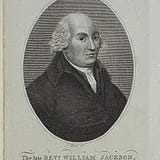


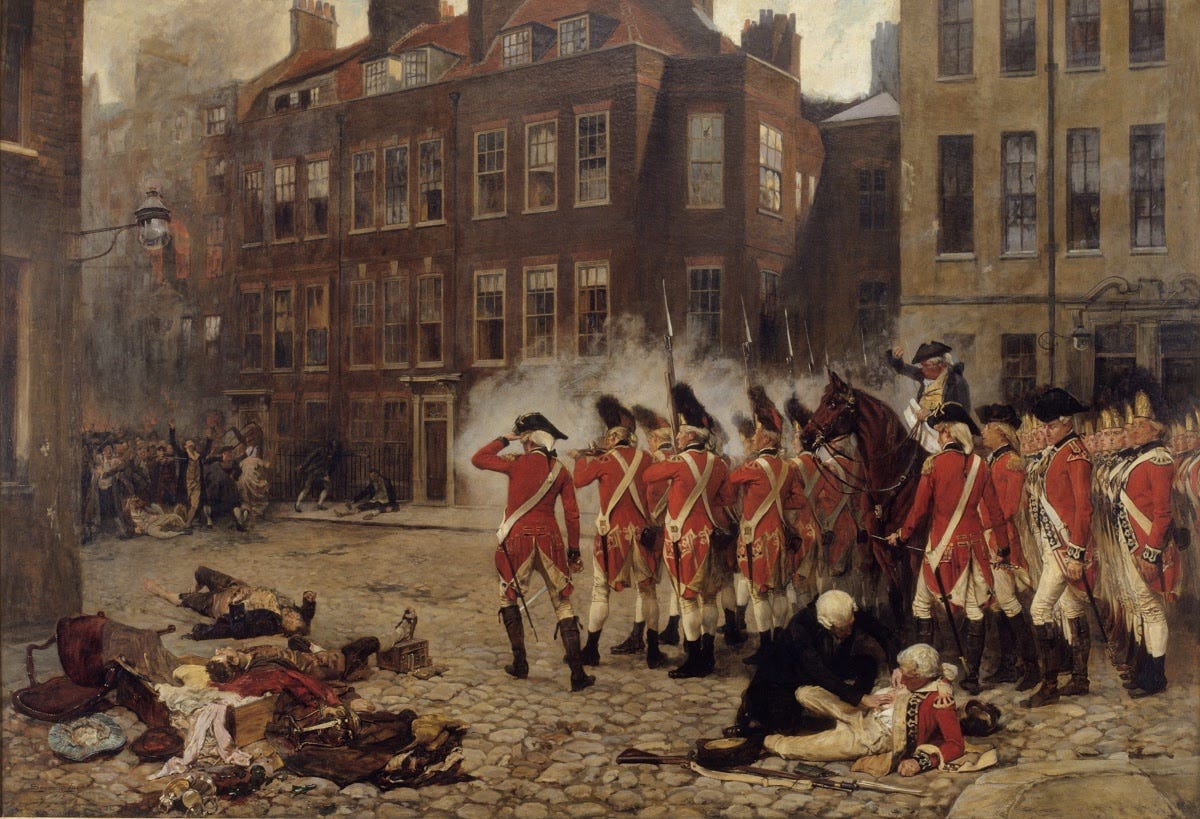


Fascinating. I'm glad to read some background on Elizabeth Chudleigh in this piece. She crops up in the Duc de Croÿ's journal in the spring of 1778 as 'la duchesse de Kingston,' residing in Paris and, in spite of the impending war, not leaving like all the other British subjects. Now I understand why!